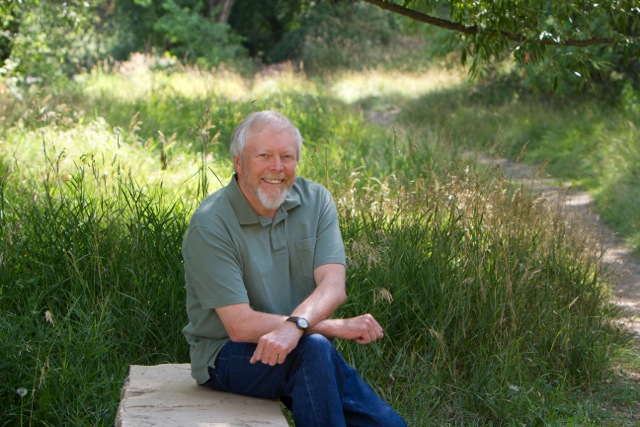The Quandary of Closeness And Compassion in Coaching

“Don’t get too close to your clients.” It may have been my junior year of being an undergraduate psychology major when a professor offhandedly gave this warning to me and a couple of other students. There is always this question about ‘therapeutic distance’. Clearly when a therapist allows their own feelings of attraction or repulsion, insensitivity or caring to interfere with the ability to deliver effective therapy, we have a problem. Therapists may wall themselves off from connecting too closely to protect themselves from the pain of their client’s suffering. At the same time, therapists are exhorted to empathize, to connect genuinely, authentically, to allow a therapeutic closeness to grow. They are often left in this ambivalent quandary of just how “close” to be to their client.
The coaching relationship is not intended to be a therapeutic one, even though it may contribute to a client’s own healing. Many experiences are therapeutic and the experience a person has with coaching may be just that. However, our intent is not to heal the old wounds of our client, but to be their assistant in their personal growth. The coach’s quandary is similar to that of the therapist, but also different. Without the ‘therapeutic distance’, it may, in fact, be even more confusing. If we are not delivering treatment with our client, then, are we more like a friend? We will hear stories of suffering. How do we protect ourselves from feeling their pain as our own?
Coaches may start to find themselves becoming more reluctant to truly engage with their clients. They may find themselves pulling back emotionally and fighting the urge to connect more closely. Hearing another story of difficulty, failure, conflict, or even trauma, abuse and neglect, we may react by diminishing the very coaching presence that is essential to helping our client to work through their challenges. The coach may find their ability to concentrate and really listen to our clients becoming reduced. It may show up physically with difficulty sleeping, a drop in our immune response, headaches, digestive issues, and much more. Our ability to be compassionate may be just worn thin.
 An ICF published article by Niamh Gaffney (https://coachfederation.org/blog/are-you-tired-of-coaching) defines Compassion Fatigue as “a combination of physical, emotional and spiritual depletion associated with caring for people in significant emotional pain and physical distress.” The term depletion is perfect in this description. Our own well feels like it has gone dry, or soon will. It may feel like our very soul is being drained. The way out of compassion fatigue is the same as preventing it.
An ICF published article by Niamh Gaffney (https://coachfederation.org/blog/are-you-tired-of-coaching) defines Compassion Fatigue as “a combination of physical, emotional and spiritual depletion associated with caring for people in significant emotional pain and physical distress.” The term depletion is perfect in this description. Our own well feels like it has gone dry, or soon will. It may feel like our very soul is being drained. The way out of compassion fatigue is the same as preventing it.
Operating From A Coach Approach
Failing to recognize the difference between coaching and counseling or therapy leads coaches to delve into an attempt at therapeutic problem solving. We may disguise it to our client and ourselves as “working on stress”, but if we approach stress management by attempting to solve all of the problems that generate stress in our client’s life, we are engaging in an infinite exercise in futility. Not only does it not work, it is exhausting for both client and coach. Your client may sense the futility before you do and leave coaching entirely.
Maintaining a coaching mindset is essential here. Can we help our stressed-out client to learn how to deal with stress, and to recover from stress instead of infinite problem solving? When coaches ask “What issues do you want to work on?” they are inviting the beginning of a therapeutic expedition. When we see ourselves as our client’s ally, not their doctor, healer, priest or therapist, we take a stance of closeness and caring but with less of a feeling of responsibility for their solutions and ‘cure’.
In wellness coaching, instead of operating on a problem du jour model, we work with our clients to help them take stock of their current health and wellness, create a vision of their best life possible and then co-create with them an effective wellness plan. Operating from a plan is totally different than continual problem solving. Certainly, we engage in strategic coaching with them to address barriers, but our job is not to provide solutions. Compassion fatigue, I believe, comes sometimes from the sense of powerlessness that we may feel when we can’t provide the magic solution for our clients that will make their lives better. When we realize that doing so is not our job, we can allow for more of a healthy compassionate detachment to take place.
Compassionate Detachment
Twenty-seven years or so of doing psychotherapy with a wide variety of clients had its joys and challenges. Upon hearing the detailed recount of a young woman or man who had been abused sexually by a parent, I couldn’t just go home saying “It’s only a movie.” Clients come needing to tell their stories to a therapist who is not afraid to go absolutely anywhere with them. A really good therapist learns to be a true warrior/warrioress of the heart who is completely fearless. Yet, the only way they can go into battle again, side by side with their client is by learning something about compassionate detachment.
We practice compassionate detachment for the benefit of our client and for our own benefit as well.
Compassionate detachment is respecting our client’s power enough to not rescue them while extending loving compassion to them in the present moment. Simultaneously compassionate detachment is also respecting ourselves enough to not take the client’s challenges on as our own and realizing that to do so serves good purpose for no one.
Compassionate detachment is an honoring of our client’s abilities, resourcefulness and creativity. We remain as an ally at their side helping them to find their own path, their own solutions. We may provide structure, an opportunity to process, a methodology of change and tools to help with planning and accountability, but we don’t rescue. As tempting as it is to offer our suggestions, to correct their errant ways, to steer them toward a program that we know works, we avoid throwing them a rope and allow them to grow as a swimmer. Sure, we are there to back them up if they go under or are heading toward a waterfall. We are ethically bound to do what we can to monitor their safe passage, but we allow them to take every step, to swim every stroke to the best of their ability.
To be compassionate with a client we have to clear our own consciousness and bring forth our nonjudgmental, open and accepting self. We have to honor their experience.
 "Only in an open, nonjudgmental space can we acknowledge what we are feeling. Only in an open space where we're not all caught up in our own version of reality can we see and hear and feel who others really are, which allows us to be with them and communicate with them properly." Pema Chodron, When Things Fall Apart
"Only in an open, nonjudgmental space can we acknowledge what we are feeling. Only in an open space where we're not all caught up in our own version of reality can we see and hear and feel who others really are, which allows us to be with them and communicate with them properly." Pema Chodron, When Things Fall Apart
Compassionate detachment is also about giving ourselves permission to protect ourselves. Being in proximity to the pain of others is risky work. There are theories about the high rates of suicide among dentists based on this. Compassionate detachment is also about being detached from outcome. We want the very best for our clients and will give our best toward that goal, but we give up ownership of where and how our client chooses to travel in the process of pursuing a better life. Their outcome is their outcome, not ours.
Compassionate detachment is not about distancing ourselves from our client. It is not about numbing ourselves out mentally, emotionally or physically. It is not about treating our clients impersonally. That is mere detachment alone and more a symptom of burnout than of good work as a coach, therapist or any kind of human helper.
Intimacy is what allows compassion. When we fear closeness, we will hold back. We will be less empathic because we fear connecting with our own feelings. Compassionate detachment is being centered enough in ourselves, at peace enough in our own hearts, to be profoundly present with our clients in their pain and in their joy as well.
From Depletion To Replenishment
If compassion fatigue is about feeling depleted, then prevention and recovery is about replenishment. Fatigue comes from the expenditure of energy: physically, emotionally, and spiritually. Coaches must ask themselves what they are consciously doing to restore their own energy supplies. Once again, we are talking about the coach’s own Wellness Foundation.
We often think of wellness in terms of exercise and participation in all kinds of wellness activities. To what degree are these activities an expenditure of energy, and to what degree do they provide an energy return and replenishment. While a workout resulting in a “good tired” feeling my fatigue us physically, it may invigorate us mentally, emotionally, and even spiritually. Once again it is a matter of balance. Are we engaging in mind/body activities that replenish our energy on multiple levels? Mindfulness practices, meditation, Tai Chi, Xi Gong, Yoga, all share the intent of this kind of replenishment.
 Our Wellness Foundation is not just about working out and eating well. What we are looking for here is replenishment on the levels at which we are being depleted: more the emotional, mental and spiritual. Re-filling our well on these levels is more about getting our needs met in these areas. Compassion fatigue can generate feelings of isolation, powerlessness and feeling overwhelmed.
Our Wellness Foundation is not just about working out and eating well. What we are looking for here is replenishment on the levels at which we are being depleted: more the emotional, mental and spiritual. Re-filling our well on these levels is more about getting our needs met in these areas. Compassion fatigue can generate feelings of isolation, powerlessness and feeling overwhelmed.
- Are we connecting with meaningful friendships to combat that isolation? Are we expressing ourselves creatively and feeling competent in other areas of our lives?
- Are we consciously engaging in device-free time, in connection with the natural world, simplifying our lives?
- Do we feel like we are truly in charge of our own lives?
- These questions address the three basic human needs that Dicci and Ryan talk about in Self-Determination Theory. (http://selfdeterminationtheory.org)
When we come back to our own center and feel like our needs are getting met, when we feel safe and secure, energized and in balance, we can extend the heart of compassion to our clients and not fear intimacy. We can be the ally they need.
Michael Arloski, Ph.D., PCC, CWP, NBC-HWC - is a psychologist, coach, trainer, author and wellness enthusiast. CEO and Founder of Real Balance Global Wellness Services, Inc., his company has trained thousands of health and wellness coaches around the world.









Only registered and logged in readers can leave comments.